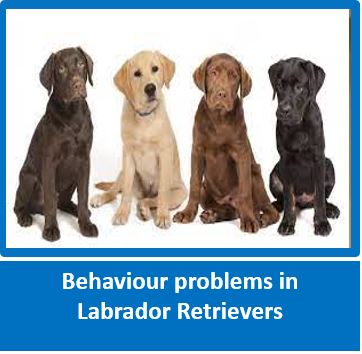|
Finding out what breeds your cross breed dog consists of has multiple benefits, including why certain behaviours may be occurring - this is especially important in all Terrier crosses, as as gorgeous as they are, they can be difficult. Finding out your dog's DNA is so easy, and done in the comfort of your home. Do contact us if any questions. www.muttmix.co.za
|
Jack Russell Terrier - Common Behaviour Concerns and ways to change them
www.pethelpful.com - a great website with info on all types of pets including the exotics
www.pethelpful.com - a great website with info on all types of pets including the exotics

All Jack Russell Terrier (JRT) owners know that these little dogs come with some drawbacks. But are JRT problem behaviors just something we have to live with? The truth is that many behavioral problems have very simple solutions.
Here are some of the biggest, headache-inducing JRT behaviors and how you can fix them.
7 Behavioral Problems in JRTs and How to Address Them
- How to Keep Your Jack Russell Terrier From Barking
- How to Keep Your Terrier From Jumping Up
- How to Discourage a JRT's Destructive Behavior
- How to Teach Your Dog Non-Aggressive Behavior
- How to Stop Your Jack Russell From Biting
- How to Keep Your Jack Russell From Running Away
- How to Solve Your JRT's Hyperactivity
1. How to Keep Your Jack Russell Terrier From Barking
Barking is a completely natural habit for a dog, and Jack Russells tend to be a bit noisier than most breeds. But there are times when barking just isn’t appropriate, so for your own sake and the sake of your neighbours, you need to get this under control.
The first thing you need to do is determine why the dog is barking in the first place. The two biggest reasons that Jack Russells bark are because of boredom or anxiety:
- Boredom - can be easily fixed by giving your dog a variety of chews to entertain herself with. Try buying hollow nylon chews which you can fill up with peanut butter, which works as a great treat.
- Anxiety - is a little harder to deal with. If there is something in the environment which is intimidating your dog – a neighbor’s dog, for example – you can block it from view with curtains or fencing. If the anxiety is the result of being separated from you, the proper treatment is to gradually get your dog used to being alone. Leave it for very short periods at first, then come back with a reward. Slowly increase the amount of time that you leave the dog alone.
Jumping up can actually be quite scary for many people, even with a small dog like a Jack Russell. Also, it's just plain annoying. Jumping up is usually caused by overexcitement. The solution is to make sure the dog gets its fair share of excitement throughout the day through games and exercise so it doesn’t end up releasing all its pent-up energy on unsuspecting guests.
Start going for more walks, play games that exhaust your dog like fetch, and teach the dog to sit on command.
3. How to Discourage a JRT's Destructive Behavior
This habit, like barking, is usually the result of boredom or separation anxiety. If you leave a puppy alone in your bedroom all day, you shouldn’t be surprised when you come home to a pair of chewed-up shoes. For a young dog, keep it in a puppy pen when you have to leave it alone. For older dogs, this is usually a bad habit formed in puppyhood that never got trained out.
Starting a formal training regime with a disobedient dog will help to set some boundaries. Also, deal with your dog's boredom – up the games and physical activity, and provide some new treats and toys. Variation of toys and mental stimulation is important for an intelligent breed like the Jack Russell.
4. How to Teach Your Dog Non-Aggressive Behavior
Aggression can be a real problem with Jack Russells, whether it’s aggression towards certain people, strangers, other dogs, or over food and toys. Often it’s a sign of a lack of socialization and is common among some rescue dogs. However, a sudden change in behavior towards aggression in a usually friendly dog can also be a sign of injury or illness.
If the aggression has come on suddenly, contact your vet. If it is an ongoing problem, try slowly introducing the dog to environments and situations where it may act aggressively, providing treats and rewards to build up a positive association.
5. How to Stop Your Jack Russell From Biting
Biting is particularly a problem in puppies, but it can be an issue with older dogs too. To stop play-biting, all you need to do is hold the puppy’s mouth shut for a few seconds, say “No” firmly and then stick a chewy treat or toy in its mouth. (Note from FOTD - we find that much better to teach Bite Inhibition, than method above.)
This lets the dog know what it should be chewing on rather than human skin. If you have an adult dog with biting problems, this is a serious matter that will probably require the skills of a professional trainer.
6. How to Keep Your Jack Russell From Running Away
Jack Russells are born hunters, and they were made to dig – so dig they shall, even if it means digging under your fence. The tendency of dogs to go roaming is generally inspired by natural urges to go and find a mate. The tendency can be reduced a great deal by neutering and spaying.
There are many other health benefits to neutering your dog too. On top of that, you should escape-proof your house and back yard, using chicken wire where necessary to block your dog from digging under fences.
|
7. How to Solve Your JRT's Hyperactivity Jack Russells are pretty hyper by nature, but many are excessively hyper because their owners don’t help them release their energy. If your dog is excessively hyper, it very likely needs more exercise. Add an extra walk to your exercise regime, make walks longer and more challenging, teach your dog to swim, and start playing lots of games. Perhaps invest in a tennis ball launcher to help you throw a ball further in a game of fetch. This is about the only way your Jack Russell will get tired before you do. |
|






